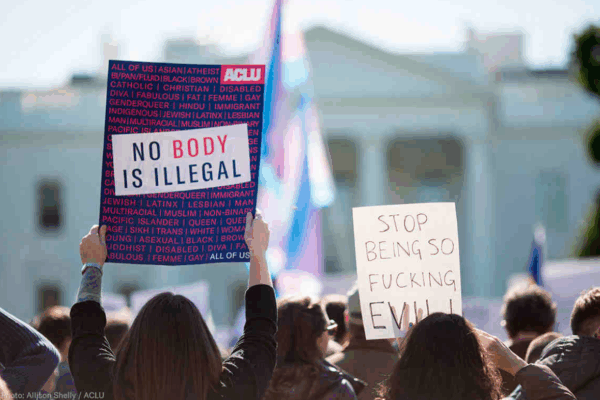The legal landscape for LGBTQ+ and Two Spirit North Dakotans is constantly evolving.
If you think you have been discriminated against, contact us and we can help you figure out whether you are protected under federal or state laws.
Stay Informed
Sign up to be the first to hear about how to take action.
By completing this form, I agree to receive occasional emails per the terms of the ACLU’s privacy statement.
By completing this form, I agree to receive occasional emails per the terms of the ACLU’s privacy statement.

